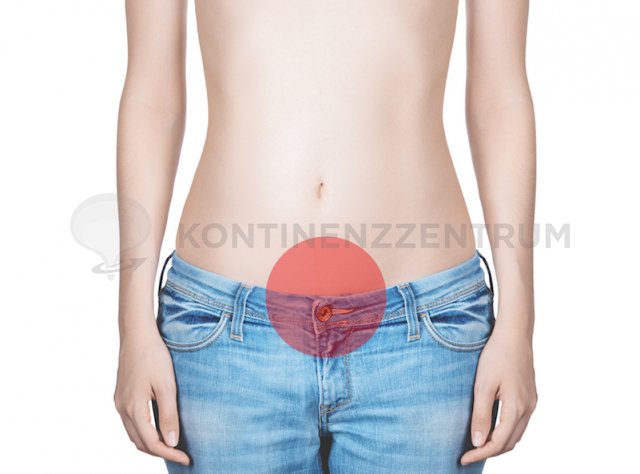Acute and chronic pelvic pain

Do you suffer from chronic pelvic pain?
Does the pain affect your daily life?
Have previous investigations failed to ascertain the cause of the pain?
Both women and men can suffer from pain starting from the pelvic organs or generally in the pelvis.
What causes chronic pelvic pain?
Pelvic pain can be triggered by the bladder, the prostate, the rectum, sex organs such as the uterus, ovaries, prostate or testicles, or by the locomotor system that supports and stabilises the pelvis.
Many factors can trigger pelvic pain:
- Disease, inflammation or injury of the organ in question
- Endometriosis
- Changes in the mucous membranes
- Dietary habits, food intolerances and allergies
- Chronic intestinal diseases
- Infections
- Tension and spasms in the pelvic floor muscles caused by physical or emotional stress, injuries or surgery
- Pain in other parts of the body can manifest in the pelvis or radiate to the pelvis as pelvic pain
- Pelvic pain can be caused by problems voiding the bladder and intestines
Chronic pain and its consequences
Pelvic pain that lasts a long time can develop into a separate, distinct chronic pain disorder. At that point the pain no longer fulfils its guidance and warning function. Physical or emotional stress can make the pain feel even worse. Pain often occurs during and/or after intercourse, affecting the patient’s sexuality and relationship.
What types of chronic pelvic pain are there?
- Prostate pain (chronic prostatitis): Inflammation of the prostate with increased, painful urge to urinate, a sensation of pressure in the perineal region and difficulty and pain when voiding the bladder, is often perceived as pelvic pain. A distinction is drawn between prostatitis caused by bacteria and a non-bacterial form. Treatment of this prostate inflammation focuses on the symptoms and is often long and difficult.
- Urethral pain: burning pain when passing urine, often also after intercourse, is perceived as pelvic pain.
- Testicular pain: burning or tugging pains in the testicles, epididymis or scrotum sometimes occur following a vasectomy or inguinal hernia surgery and cause pelvic pain.
- Endometriosis: A pelvic condition in which fragments of the uterine mucous membrane relocate outside the uterus. This occurs mainly in the lower abdomen (e.g. in the ovaries, peritoneum, intestines or bladder), but also more rarely in other organs (skin, lungs) and is affected by the hormones of the monthly cycle. Just like the normal uterine mucous membrane, these fragments also grow in tune with the cycle and can consequently trigger pelvic pain.
- Vulvodynia or vaginal pain are sensations of discomfort or pain in the region of the external female sex organs. It is often impossible to identify the cause, but this condition is perceived as pelvic pain.
- Irritable bowel syndrome as a cause of pelvic pain: functional intestinal diseases with irregular bowel movements with constipation, diarrhoea, or alternation between both. Irritable bowel syndrome can imitate the symptoms of all possible bowel conditions, and so the diagnosis can only be established once other possible bowel diseases have been ruled out.
- Anal pain syndrome: Anal pains, which can be caused by haemorrhoids, anal fissures, inflammation of the anal canal or irritable bowel syndrome, are perceived as pelvic pain.
- Neuropathic pain: Irritation, damage or constriction of pelvic nerves (such as the pudendal nerves) causes pelvic pain.
- Pain associated with pelvic floor malfunction: Pelvic pains accompanied by muscular tension and hardening in the pelvic floor, often with radiating pain and circumscribed areas that trigger the pain (trigger points) - often associated with difficulty voiding the bladder and/or bowel.
What you can do yourself to relieve your symptoms
- Avoid food and drink that is acid, spicy, or contains caffeine. Keep a diary to note whether other foods also make the symptoms worse.
- Yoga, tai chi and meditation can help attenuate the pain. Not every method suits everyone, try to find something that relaxes you. Sometimes just breathing deeply in and out for 10 minutes a day helps.
- Try to reduce stressful factors in your life. You can learn different ways of dealing with and perceiving stress.
- Find exercises to loosen the tense muscles in your abdomen, pelvis and inner thighs.
- Gentle jogging or walking at a moderate pace or without over-exerting yourself can help reduce the pain and unpleasant thoughts.
When do you need specialist help?
If you have only recently started to experience mild pelvic pain, you can often do something yourself to help relieve the pain. But if the situation does not improve you need to see an experienced specialist for diagnosis and treatment to stop the pelvic pain getting worse and becoming chronic. You should see a specialist doctor if you have had pelvic pain for more than four weeks.
Once the specialist has taken a detailed medical history and performed appropriate tests, he or she can recommend a treatment suited to your condition and your individual needs, and support you during recovery and beyond if necessary.
Contact us to arrange an appointment so that we can advise you on your personal treatment options.
